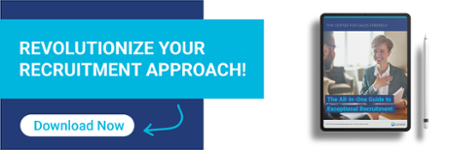 Let’s face it: Colleges and universities are not accustomed to hiring salespeople. They hire educators, administrators, technicians of various sorts, and clerical staff of nearly every type. But they don’t hire great salespeople or what they call “Business Developers.” And yet, increasingly these institutions find themselves hiring people who are setting appointments, providing need assessments, solving problems and delivering customized solutions that are addressing the business challenges of rapidly changing technology, employee performance and customer satisfaction.
Let’s face it: Colleges and universities are not accustomed to hiring salespeople. They hire educators, administrators, technicians of various sorts, and clerical staff of nearly every type. But they don’t hire great salespeople or what they call “Business Developers.” And yet, increasingly these institutions find themselves hiring people who are setting appointments, providing need assessments, solving problems and delivering customized solutions that are addressing the business challenges of rapidly changing technology, employee performance and customer satisfaction.
Hiring salespeople is different. Of course, they need the qualities you look for in every hire—integrity, intelligence, focus, energy, and readiness to execute. But business-to-business salespeople also need at least these four additional traits as well.
1. Empathy
Successful salespeople identify with their customers and pick up on their feelings. They understand their needs and pressures they’re under; they get how business works and can wrap their heads around the challenges faced by each prospect. Yes, they represent the college and its specific B2B offerings, and yes they want to drive revenue for the institution. But the best ones—the ones you want—are geniuses at balancing the interests of the college and the interests of the customer as they assemble a tailored solution.
See also: Which is More Important in a Sales Manager: Empathy or Accountability?
2. Trustworthiness
The salesperson is the primary interface between the college and the the customer; both must see that salesperson as perfectly trustworthy. Their word must always be good; their handshake has to signify unerring follow-through. Excellent salespeople see every contract in the context of a long-term relationship, and they consistently act in such a way as to preserve, the key quality that underlies long-term business arrangements.
3. Persistence
More than any other job on earth, sales entails daily disappointments. The best salespeople still have a losing record… which is why they need the precious talent of persistence, the ability to keep pushing through disappointments great and small. Their focus on the goal—whether that is closing one particular prospect, slogging through cold calls and the inevitable No’s to reach a Yes, or reaching their quarterly revenue target—is so strong that they just keep going. When hiring a great salesperson, the college need to make sure that person has a powerful mixture of drive, courage, and self-confidence.
See also: A Sales Strategy to Be Persistent without Appearing Desperate!
4. Innovation
The biggest complaint from business today is that colleges don’t understand what they need. Serving the business community with training services requires real savvy about what those needs are and how they’re changing. The most valuable salespeople have “the wheels turning in their heads” all the time. They think creatively, not only about how local firms can use the services the college or university already has on offer, but also what new training services the institution might develop in order to better align their offering to evolving needs. Salespeople are in the perfect place to render this service to their employers, but only if they have an innovative mind. Hire for it.
See also: 6 Ways to Tell if You Are a Thought Leader
Serving the business community and earning a profit doing so, remains a priority for a college or university, hiring excellent Business Development personnel is not an option. Selecting people who have innate strength in the areas most critical to success is a must!
We have focused today on empathy, trustworthiness, persistence, and innovation, but those are only a few of the talents possessed by the very best salespeople for this kind of work. Make sure you use a scientific talent instrument that will allow you to identify and uncover all of the innate talents that you need in the job. The right assessment will allow you to compare the talents and behaviors of your candidate with those of top performers in the industry so you know how they will likely measure up. Making smart selection decisions and putting the right people in the right seats will greatly increase the likelihood that everyone’s needs and goals are met.



